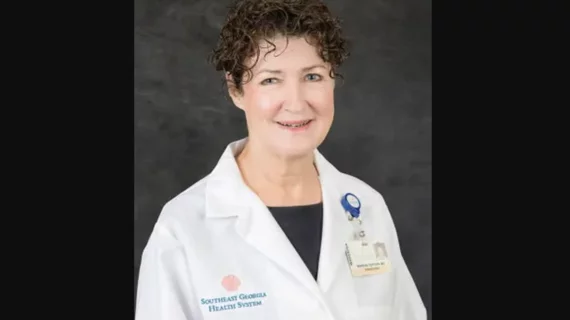Cardiologist killed in apparent murder-suicide
A Georgia cardiologist was murdered Thursday, April 18, in an apparent murder-suicide. She was 69 years old.
Marsha Certain, MD, FACC, was an interventional cardiologist with Southeast Georgia Physician Associates-Cardiology in Brunswick, Georgia, for nearly 40 years. She was also a longtime member of the American College of Cardiology.
According to the Wayne County Sheriff’s Office, officers arrived at Certain’s house after receiving a report that she had been shot by her boyfriend, Tracey Sanna. The deputies set up a perimeter around the property and tried to communicate with Sanna, but made little progress. Not long after arriving, they heard a gunshot and entered the house. Both Certain and Sanna were found dead.
The full report is available on the office’s Facebook page.
‘Our health system has lost a dedicated physician and employee’
Scott Raynes, president and CEO of the Southeast Georgia Health System, issued a statement to the media highlighting her massive impact on both the facility and its patients.
“Dr. Certain’s patients greatly enjoyed having a female cardiologist; she understood the importance of building a personal rapport and relationship with her patients—as well as with her colleagues, staff and fellow team members,” Raynes said. “Our health system has lost a dedicated physician and employee, our community and patients have lost an outstanding health advocate, and her family and friends have lost a vibrant, loving member of their lives. Dr. Certain will be greatly missed and we extend our deepest condolences to her family, friends, patients and coworkers during this incredibly difficult time.”

